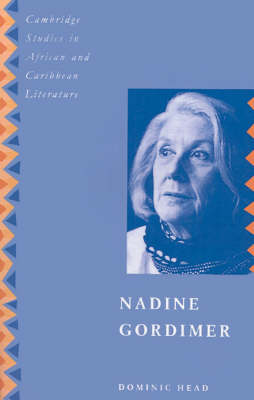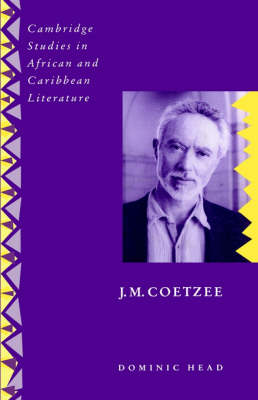Cambridge Studies in African and Caribbean Literature
2 total works
The award to Nadine Gordimer of the Nobel Prize for Literature in 1991 was an affirmation of her distinctive contribution to twentieth-century fiction and to the creation of a literature that challenges apartheid. In this study, which may be used as an introduction as well as by those already familiar with Gordimer's work, Dominic Head discusses each of her novels in detail, paying close attention to the texts both as a reflection of events and situations in the real world, and as evidence of her constant rethinking of her craft. Head shows how Gordimer's concerns, apparent in her earliest novels, are developed through increasing stress on the politics of textuality; and he pursues the implications of this development to consider how Gordimer's later work contributes to postmodernist fiction, and to a recentering of political engagement in an era of uncertainty.
The importance of J. M. Coetzee in the development of twentieth-century fiction is widely recognised. His work addresses some of the key issues of the late twentieth and early twenty-first centuries: the relationship between postmodernism and postcolonialism, the role of history in the novel, and the question of how the author can combine an ethical and political consciousness with a commitment to the novel as a work of fiction. In this study, written in 1998, Dominic Head assesses Coetzee's position as a white South African writer engaged with the legacy of colonialism. Through close readings of all the novels, Head shows how Coetzee inhabits a transitional site between Europe and Africa, and it is from this position that his more general concerns emerge. Coetzee's engagement with the problems facing the postcolonial writer, Head argues, is always enriched by his awareness of a wider literary tradition.

